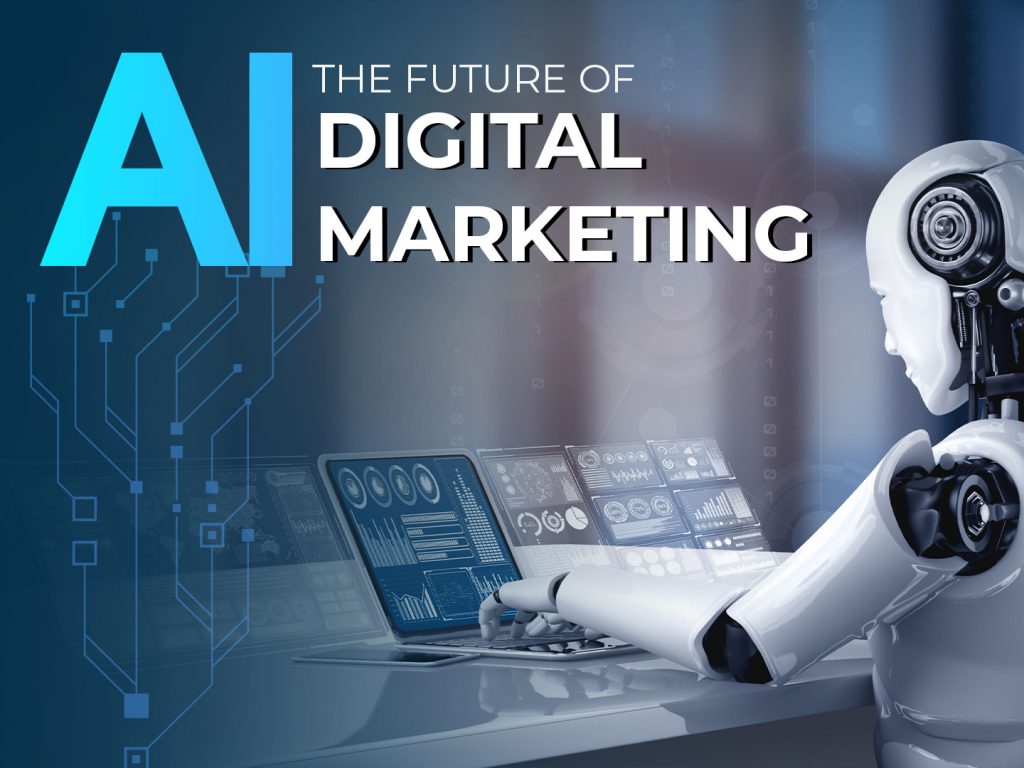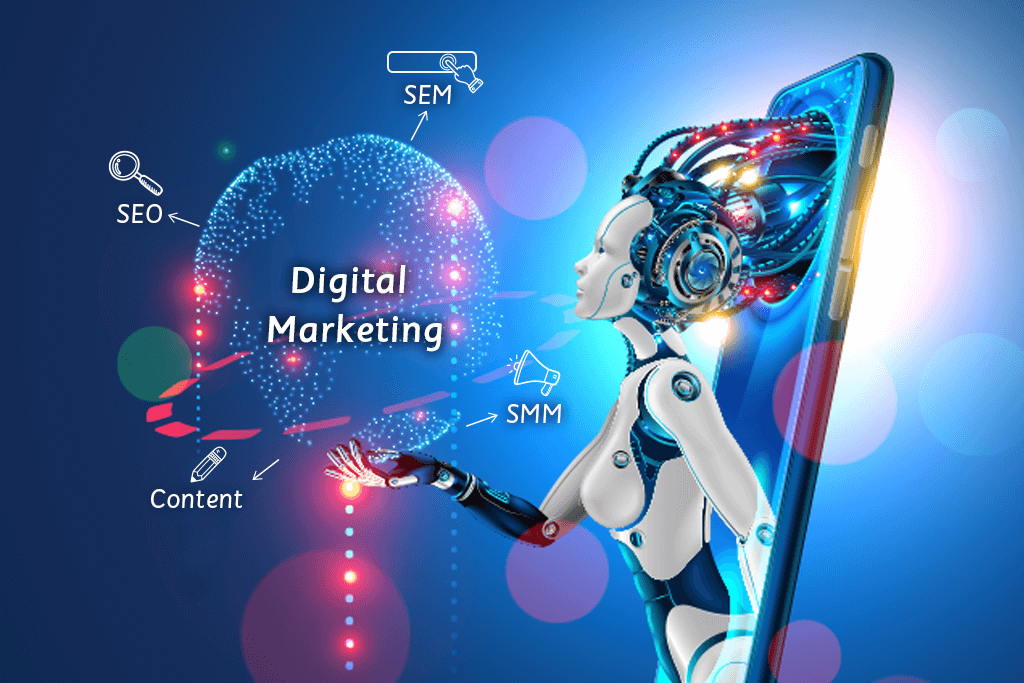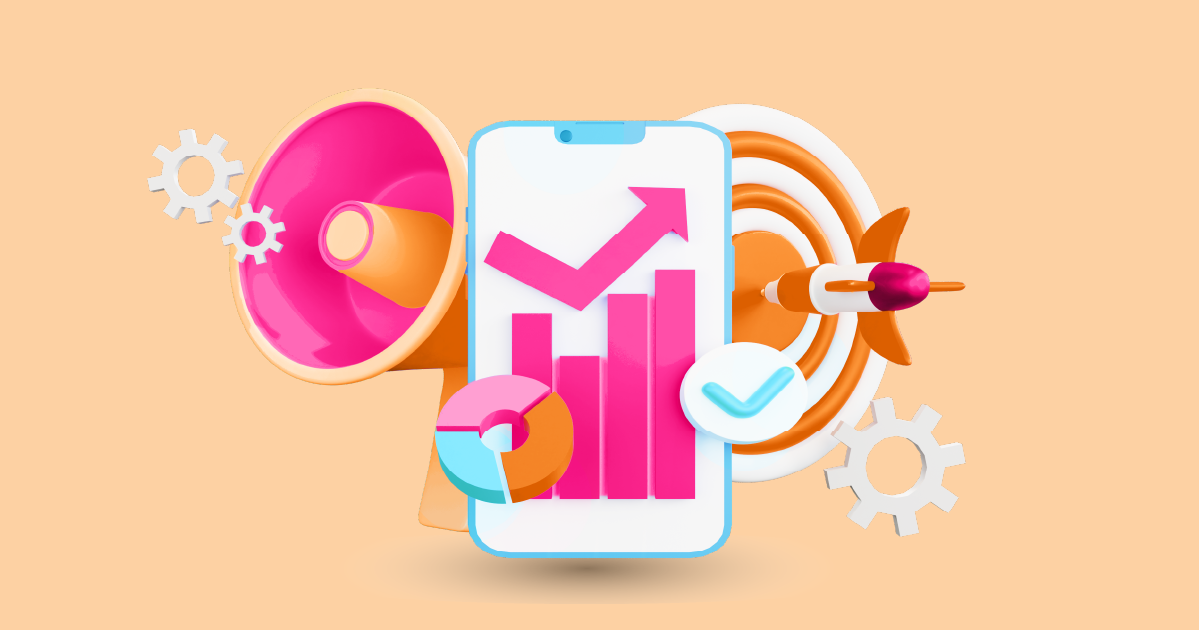In the dynamic realm of marketing, Artificial Intelligence (AI) has emerged as a transformative force, reshaping how businesses connect with their audiences. This article explores the multifaceted impact of AI in marketing, delving into its applications, benefits, challenges, and future trends.
Evolution of AI in Marketing

Historical Overview AI’s integration into marketing didn’t happen overnight. This section provides a brief historical overview, highlighting key milestones that paved the way for AI’s prominence in the marketing landscape.
Applications of AI in Marketing
- Customer Segmentation and Targeting: AI’s ability to analyze vast datasets enables precise customer segmentation, allowing marketers to tailor campaigns for maximum impact. This subsection explores the role of AI in refining target audiences.
- Personalized Content Creation: Gone are the days of generic content. AI facilitates the creation of personalized content that resonates with individual consumers, fostering a deeper connection between brands and their audiences.
- Chatbots and Customer Interaction: Chatbots powered by AI have revolutionized customer interactions. Here, we delve into how AI-driven chatbots enhance user experience and streamline customer support.
- Predictive Analytics for Marketing Campaigns: By harnessing predictive analytics, marketers can anticipate trends and consumer behavior. This subsection explores how AI augments the effectiveness of marketing campaigns through data-driven insights.
Benefits of AI in Marketing
- Improved Efficiency: AI automates repetitive tasks, freeing up time for marketers to focus on strategy and creativity. This section discusses how improved efficiency translates to better overall performance.
- Enhanced Personalization: Personalization is a cornerstone of modern marketing. AI’s ability to analyze individual preferences enables highly targeted and personalized marketing efforts.
- Real-time Data Analysis: In a fast-paced digital landscape, real-time data analysis is crucial. AI provides marketers with the tools to analyze data instantly, enabling timely decision-making.
- Cost Savings: Implementing AI can lead to significant cost savings by automating processes and optimizing resource allocation. This subsection explores how businesses can achieve cost-effectiveness through AI integration.
Challenges and Concerns
- Data Privacy Issues: AI’s reliance on data raises privacy concerns. Here, we discuss the challenges associated with maintaining data privacy in AI-driven marketing strategies.
- Ethical Considerations: As AI becomes integral to marketing decisions, ethical considerations come to the forefront. This subsection examines the ethical implications of artificial intelligence in marketing.
- Resistance to AI Adoption: Despite its benefits, some businesses face resistance to adopting AI. We explore common reasons for reluctance and strategies to overcome resistance.
Future Trends
- Emerging Technologies: The future of artificial intelligence in marketing is shaped by emerging technologies. This section explores innovative technologies that are poised to redefine marketing strategies.
- Shaping the Future of Marketing: AI’s role in shaping the future of marketing is profound. We discuss the potential transformative effects AI may have on the marketing landscape.
Tips for Implementing AI in Marketing Strategies
- Assessing Business Needs: Before integrating AI, businesses must assess their unique needs. This subsection provides insights into how businesses can evaluate their requirements.
- Selecting the Right AI Tools: Not all AI tools are created equal. Here, we offer guidance on selecting the right AI tools that align with specific marketing goals.
- Training Teams for AI Integration: Successful AI implementation requires a skilled workforce. This section emphasizes the importance of training marketing teams for effective AI integration.
The Role of AI in SEO
- AI-driven SEO Strategies: AI’s impact on Search Engine Optimization (SEO) is profound. We delve into how AI-driven strategies influence search engine rankings and visibility.
- Impact on Search Engine Rankings: AI’s role in SEO extends beyond keywords. This subsection explores how AI influences search engine rankings and the evolving dynamics of online visibility.
Balancing Human Creativity and AI Automation
- Collaboration Between Marketers and AI Systems: AI is a tool, not a replacement. This section discusses the importance of collaboration between marketers and AI systems, fostering a balance between automation and human creativity.
- Fostering Innovation in Marketing: AI augments human capabilities, opening avenues for innovation. Here, we explore how the synergy between AI and human creativity can drive marketing innovation.
Risks and Precautions
- Potential Risks in Overreliance on AI: While powerful, AI is not without risks. This subsection identifies potential risks associated with overreliance on AI in marketing strategies.
- Precautions for Mitigating AI-related Risks: To mitigate risks, precautions are essential. We discuss proactive measures businesses can take to minimize AI-related risks and challenges.
AI Marketing in Various Industries
- Overview of AI Integration in Different Sectors: AI’s impact transcends industries. This section provides an overview of how AI is integrated into various sectors, from healthcare to finance.
- Industry-specific Benefits and Challenges: Each industry presents unique challenges and benefits. Here, we explore how AI addresses sector-specific challenges and contributes to growth.
Future Outlook and Developments
- Predictions for AI’s Role in Marketing: Looking ahead, we make predictions about the evolving role of AI in marketing and how it will continue to shape industry practices.
- Continuous Evolution of AI in Marketing Strategies: AI is dynamic, and its evolution is ongoing. This subsection discusses the continuous evolution of AI and its implications for marketing strategies.
Conclusion
In conclusion, this article provides a comprehensive exploration of artificial intelligence in marketing. We recap key points highlighting the transformative impact of AI on marketing practices.
Affirming the crucial role of artificial intelligence in modern marketing, we emphasize its potential to drive innovation, enhance efficiency, and foster meaningful connections with audiences.
Ready to experience the power of AI in marketing firsthand? Request a demo from AIM Technologies today and discover how our cutting-edge solutions can elevate your marketing strategies to new heights.
FAQs
Is AI only beneficial for large businesses, or can small businesses also leverage its advantages?
- AI is versatile and scalable, making it beneficial for businesses of all sizes. Small businesses can leverage AI to enhance efficiency, personalize marketing efforts, and compete effectively in the digital landscape.
How can businesses address ethical concerns related to artificial intelligence in marketing?
- Addressing ethical concerns involves transparent communication, adherence to data privacy regulations, and a commitment to responsible AI use. Businesses should prioritize ethical considerations in their AI-driven marketing strategies.
What are some emerging AI technologies that marketers should keep an eye on?
- Emerging AI technologies include natural language processing, computer vision, and AI-driven automation tools. Marketers should stay informed about these technologies to remain competitive in the evolving marketing landscape.
How can artificial intelligence improve the effectiveness of SEO strategies?
- Artificial intelligence enhances SEO by analyzing user behavior, optimizing content for search engines, and providing insights for keyword targeting. Implementing AI-driven SEO strategies can lead to improved search engine rankings and visibility.
Are there any potential risks in relying too heavily on AI for marketing decisions?
- Yes, overreliance on AI can pose risks such as bias in algorithms, data security concerns, and a lack of human creativity. Businesses should strike a balance between AI automation and human oversight to mitigate these risks.




